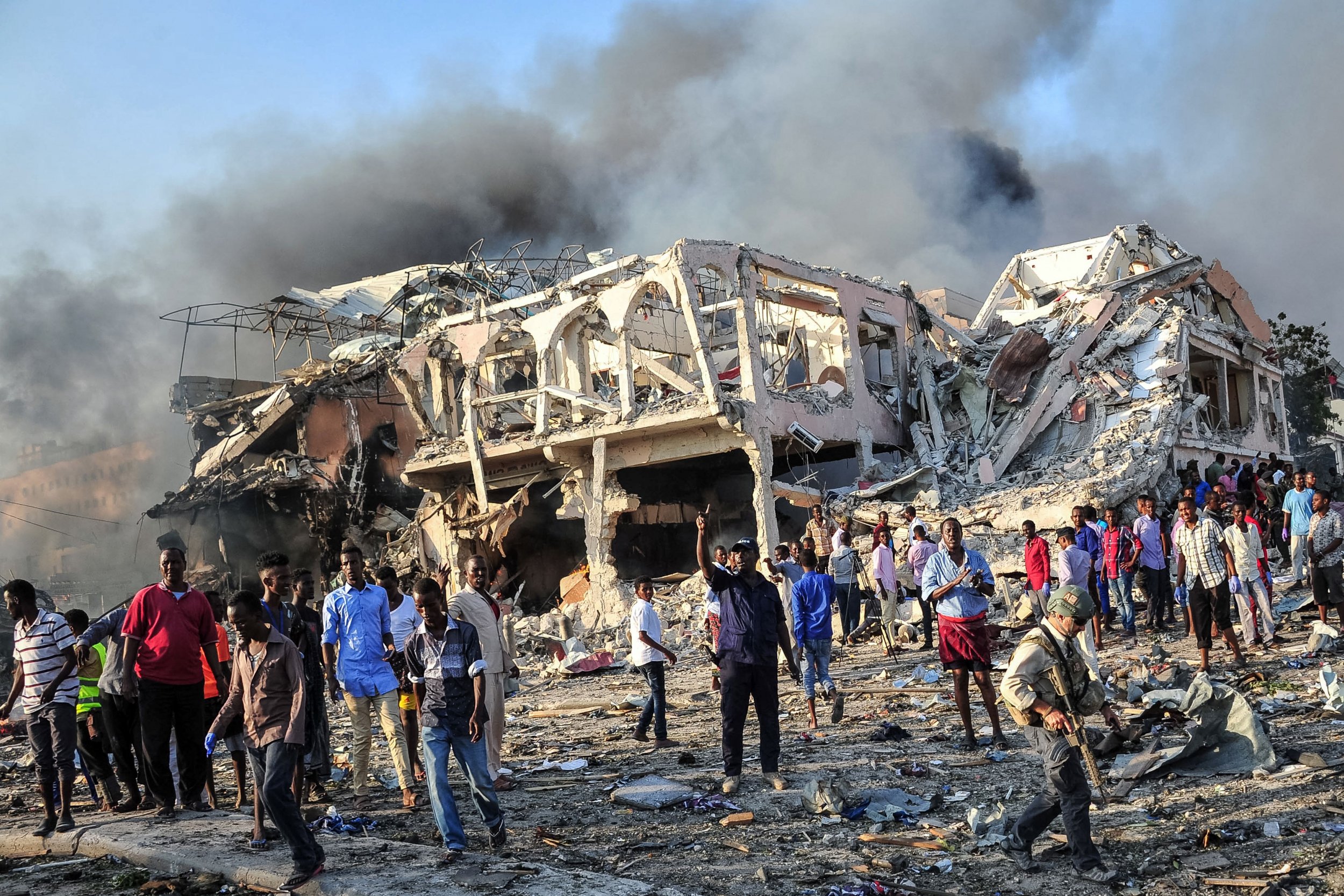
The Trump administration has more than doubled the number of U.S. troops in Somalia this year, putting them at the highest level since the 1993 Black Hawk Down episode that left 18 Americans dead.
There are now more than 500 U.S. troops stationed in the east African country ravaged by civil war, Politico reported, the most since two Black Hawk helicopters were shot down and a pilot captured in Mogadishu more than two decades ago.
It is the latest development in Trump's strategy of expanding military commanders' authority in the battle against jihadis in Africa.
The U.S. is now transporting more troops to Somalia to advise and train Somali troops in a bid to combat radical Islamists who have long operated in the failed state. Somalia now has a functioning government but its institutions remain weak.
As well as ramping up its troop presence in the country, the Pentagon has quietly increased its drone operations in Somalia.
Since the beginning of 2017, the U.S. military has conducted 28 drone strikes against radical Islamists in Somalia. More than half of those—15 strikes—have been conducted since the beginning of September. The U.S. Africa Command conducted a total of 15 strikes in the whole of 2016.
The strikes have predominantly targeted Al-Shabab, the group affiliated with Al-Qaeda that has been waging an insurgency against the Somali government since 2006.
But U.S. officials are also concerned about a growing presence of the Islamic State militant group (ISIS) in the country, and a potential influx of ISIS fighters into the country as the group loses territory in Iraq and Syria.
The rival group to Al-Shabab has established a presence in the semi-autonomous state of Puntland in the north of Somalia.
But Al-Shabab remains the most deadly jihadi force in the country, carrying out a series of large-scale bombings in Somali cities. The group carried out two major attacks in the capital, Mogadishu, in October.
In one attack, on October 14, a huge truck bombing killed more than 350 people and injured at least 400 more. Authorities blamed Al-Shabab, although no group claimed responsibility for the attack.
The truck stopped before its intended target and detonated while stationary, leaving open to speculation its final destination. Officials believe that the real target of the blast may have been a compound housing soldiers or the Somali foreign ministry.
Uncommon Knowledge
Newsweek is committed to challenging conventional wisdom and finding connections in the search for common ground.
Newsweek is committed to challenging conventional wisdom and finding connections in the search for common ground.
About the writer
Jack is International Security and Terrorism Correspondent for Newsweek.
Email: j.moore@newsweek.com
Encrypted email: jfxm@protonmail.com
Available on Whatsapp, Signal, Wickr, Telegram, Viber.
Twitter: @JFXM
Instagram: Read more
To read how Newsweek uses AI as a newsroom tool, Click here.








